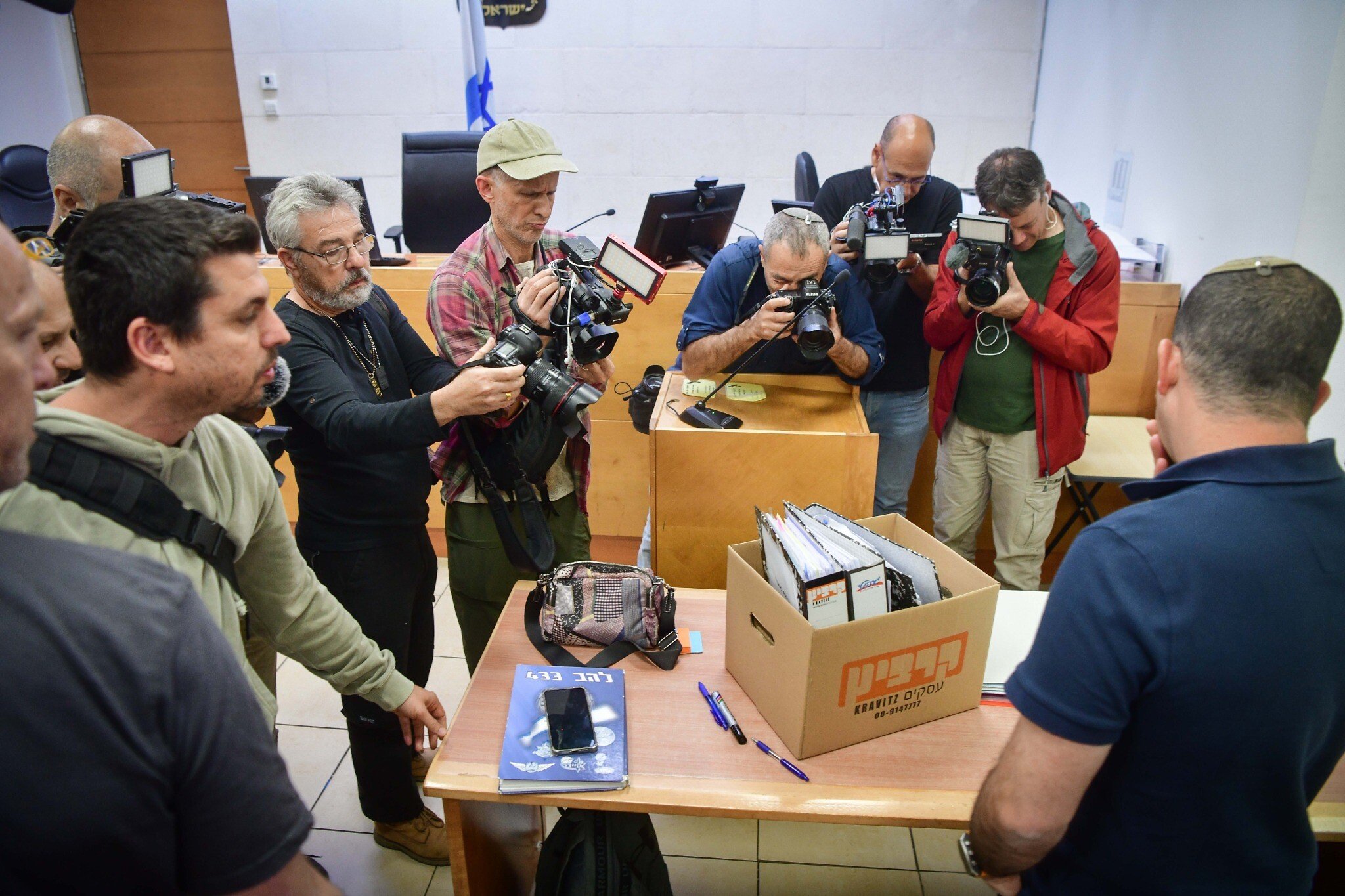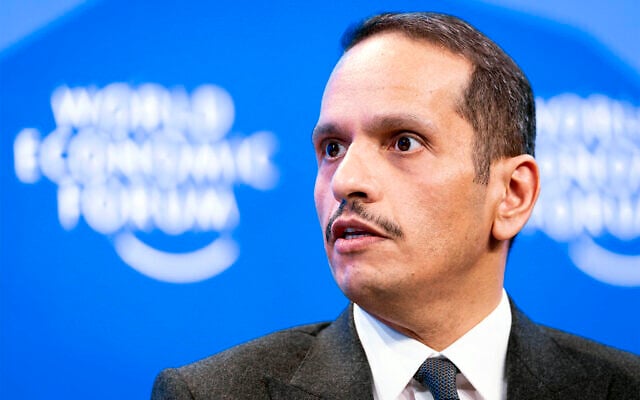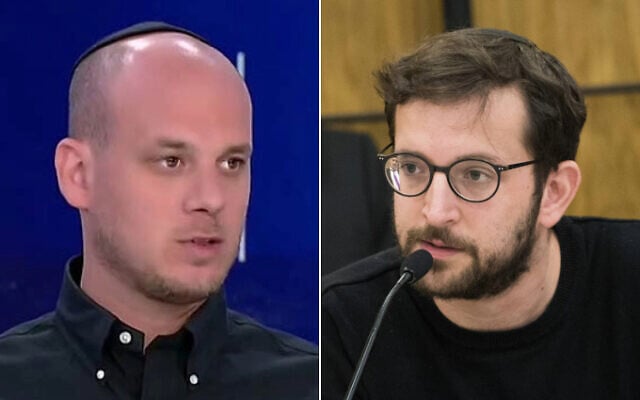



The Qatargate affair which has enveloped the Prime Minister’s Office in recent weeks has, in the last two days, roiled the airwaves and scandalized the news pages. Murky details have emerged of pro-Qatar lobbyists, spin doctors in the pay of both the Likud party and, allegedly, Doha, and bank transfers via a third-party international businessman.
Two close aides to Prime Minister Benjamin Netanyahu were arrested Monday on suspicion of a variety of crimes in connection to the scandal, and Netanyahu himself was asked by the police to give testimony over the affair.
This led to the extraordinary sequence of events on Monday in which the premier cut short his testimony in his criminal trial in the Tel Aviv District Court in order to get back to Jerusalem to be questioned by police investigators.
A rush of details regarding the criminal investigation then emerged Tuesday, during a hearing to extend the detention of those two aides and after a gag order over the affair was lifted.
But beyond the drama and spectacle of recent days, what exactly are the suspicions against the key suspects in the case, and what laws might they have violated?
On Tuesday, Judge Menahem Mizrahi of the Rishon Lezion Magistrate’s Court issued a brief summary of investigators’ suspicions surrounding the case, saying there was a “reasonable suspicion” that the factual situation he described was well-founded.
The central suspects in the case are Jonatan Urich, a close and long-time aide to Prime Minister Benjamin Netanyahu, and Eli Feldstein, who was employed as a military affairs spokesman for the premier immediately after the October 7 Hamas onslaught.
Feldstein is already under indictment in a separate case on charges of transmitting classified information for allegedly having leaked material from a secret document to the German Bild newspaper last year.
According to Mizrahi, in the period under investigation, an American lobbying company called The Third Circle, owned by American pro-Qatar lobbyist Jay Footlik, formed a direct connection with Urich in order for Urich to disseminate positive messages in the Israeli media regarding Doha’s role as a facilitator in the hostage deal negotiations between Israel and Hamas, and to spread negative messaging about Egypt’s role in the negotiations.
Urich appears to be the primary suspect in the affair, and apparently employed Feldstein to help in the work of being in contact with journalists to advance this messaging.
Feldstein was paid through the Gulf-based Israeli businessman Gil Birger, which Birger himself confirmed last month to the Kan public broadcaster, saying he was asked to make the payment for “VAT reasons,” referring to Israel’s value-added tax.
Further filling out the information regarding the case, a police investigator told the court on Tuesday that Urich “and others” relayed information to journalists under the pretense that it came from senior Israeli political or security officials, when in reality it was messaging emanating from the Qatari government via Footlik’s lobbying company which Urich and Feldstein were spreading.
In addition, it has emerged that Urich and Netanyahu were questioned about alleged leaks of information from security cabinet meetings by Urich to the media.
So what laws, then, could Urich and Feldstein have broken.
One of the possible violations is “having contact with a foreign agent,” punishable by up to 15 years in prison.
According to Israel’s penal code, a foreign agent is defined as someone against whom there is a reasonable suspicion that they are working for a foreign nation to gather classified information, or of involvement in activities which could harm Israel’s state security.
In the framework of the Qatargate investigation, it would appear that if this is one of the laws investigators believe may have been violated, it would be Footlik or his company, working to promote Qatar’s image in Israel, which would be the “foreign agent” in question.
Nevertheless, it may be hard to prove in court that doing public relations work to improve Qatar’s standing in Israel could be considered activity which would harm state security.
Some Israeli foreign affairs commentators have argued that the briefings which did indeed come out of the Prime Minister’s Office against Egypt’s role in the hostage negotiations harmed efforts to reach an agreement with Hamas for a hostage release deal, and specifically harmed Egypt’s ability to influence Hamas.
Whether this assertion can be used to demonstrate harm to Israeli security in court, however, remains a question.
Other criminal violations with which investigators are reportedly considering charging Urich and Feldstein are fraud and breach of trust, money laundering, and taking a bribe.
These are crimes which are only applicable to civil servants, that is, those working in the service of the state.
This situation is somewhat complicated by the fact that Urich and Feldstein were not employed by the Prime Minister’s Office. Urich was employed as a media adviser for Netanyahu’s Likud party, and Feldstein was hired as an independent media adviser in the Prime Minister’s Office, after he was denied security clearance by the Shin Bet in April 2024.

In this manner they would, in theory, not be bound by the regulations of the Israeli civil service or need to pass a security clearance.
Urich’s attorney Amit Hadad (who is also Netanyahu’s attorney in his corruption trial) indeed argued in court on Tuesday that his client is not a civil servant and therefore cannot be charged with fraud and breach of trust, money laundering, and taking a bribe.
The judge, however, rejected this argument, apparently basing this contention on previous court rulings that it is not the formal position or how an individual is paid that determines if someone is a civil servant, but rather the essence of their job.
Serving as a media adviser to the prime minister, similar to the numerous spokespersons and media advisers to other government ministers, would therefore appear to meet the definition of a civil servant.
Fraud and breach of trust is a broad criminal violation, but is based on the idea that a civil servant is placed by the state in a position of trust and in which he has certain powers and authorities which are supposed to be used for the public good.
Having a conflict of interest is a classic example of how the crime of fraud and breach of trust may be violated.
For Urich and Feldstein to be doing work to advance Doha’s image in Israel specifically regarding its role in hostage negotiations — when Qatar has also been a primary funder of Hamas and hosts senior Hamas leaders, and during an ongoing war with Hamas — while at the same time working as media advisers to the prime minister of the state of Israel, would ostensibly be a conflict of interest.
This charge would take on greater weight if, according to investigators, Urich and Feldstein released statements to journalists which included pro-Qatar messaging in the name of “senior political officials,” a term which Netanyahu’s media advisers are known to use in reference to the prime minister when they don’t want a quote to be attributed to him directly.
Meanwhile, a possible charge of “money laundering” against Urich may stem from the manner in which Feldstein appears to have been paid through Birger.
Last month, Birger said Footlik approached him to give the money to Feldstein, explaining that he was asked to make the payment for tax reasons.
Whatever the exact reasons and motivations for having Birger, not Footlik, pay Feldstein, hiding a source of money or concealing the parties transferring the money is considered part of the crime of money laundering.
The form a bribery charge might take against Urich or Feldstein is not currently clear.
In addition to these possible crimes. Urich is suspected of passing classified information to Footlik, which would constitute the crime of transmitting classified information to unauthorized individuals, a crime for which Feldstein has already been indicted in the classified documents scandal.
Feldstein was already under house arrest when he was detained in connection with the Qatargate investigation on Monday.
Birger himself has been questioned as a suspect in the affair, while a former aide to Netanyahu, Yisrael Einhorn, is also thought to be connected to the Qatargate scandal.





